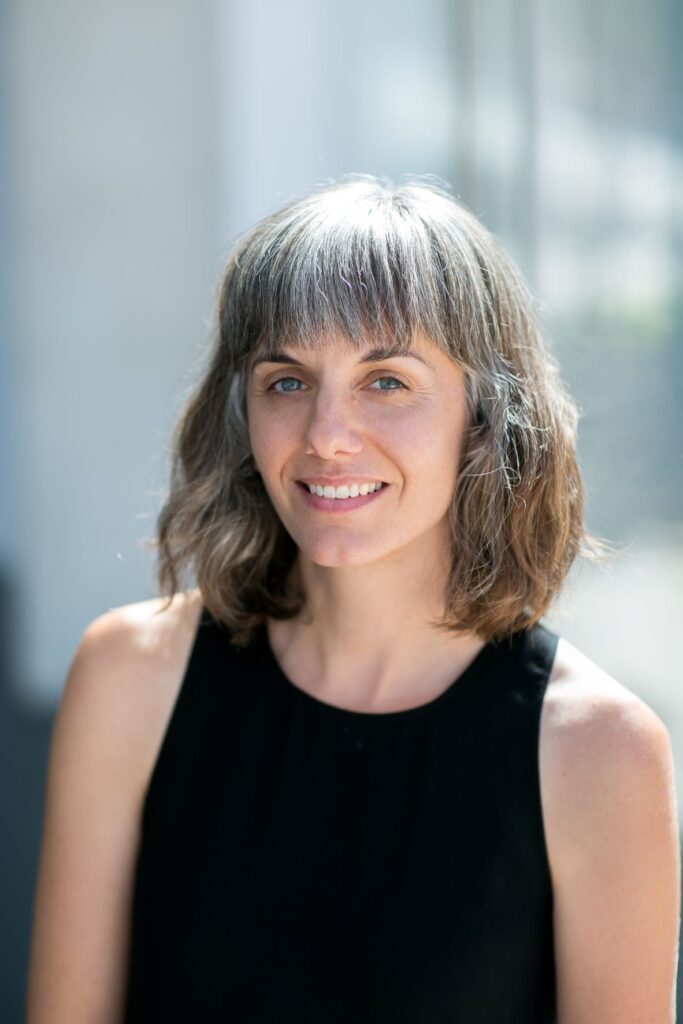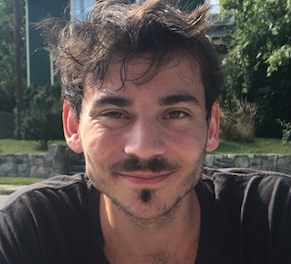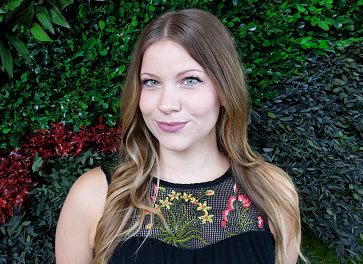Associate Editor Lisa Low: Krista Eastman’s “On Leave” opens with a study of contrasts on new motherhood, set lakeside where the speaker and her newborn son are spending the morning after sleepless nights. As the essay progresses, contrasts deepen beyond the speaker and the other mothers, appearing in the landscape also. A climactic moment rearranges reality, and typical ideas of mother- and parenthood are unsettled and made more complex.
Click below to hear her read this essay:
On Leave
There are new mothers all around me, or so it seems. They astound me with the lightness of their jogging, or with the ease of their walking, by the incidental way babies have been bound to them in wholesome-looking cloth. We do things differently. We sit on a bench with our hurt body, my son staring up at the sky from the kind of stroller made for the slow, plodding parade of us and our new heap of stuff. The baby, for his part, has every charm of soft new life—the flesh folds, the quarter-size fists—but I, it goes without saying, do not. I have been shuffling along, wincing and breathless, feeling as though I might expire: by slipping into the lake for some sleep, by evaporating into a summer morning midstride. It is bright, and we have not slept, or we have never once slept longer than two hours. Out on the lake, a giant aluminum weed harvester is plunking across the water. A young woman sits aboard the pilot seat, looking at her lap, scrolling on her phone as the churning wheel behind her pulls up green gagging weeds, the gorge and bloom of runoff pollution.
On the bench we listen to a lullaby programmed into the baby swing at home. We are listening—or we are reaching out to turn it off—when a clean line of thought appears out of nowhere, as if from a past life in which we have slept long and hard: This is an auditory hallucination this is what they mean by an AUDITORY HALLUCINATION. We can see, almost, that we are tripping. For their part, the muskrats are diligent in crossing the water in straight lines on their way to something or someone else. The harvester works the water as the young woman scrolls, the lake still a lake. This lake is polluted, I say to the son, posing as someone who might someday explain things. But this sentence, burdened by sleeplessness, by drunken sun, will not transmit in the usual way, from one body to the other, and instead seeps into the world sideways, leeching from the outside in, until it’s a vision I see and a sound I hear everywhere. Someday we will make sense of this, I promise the boy, we will separate everything out. We remain by the lake in a bleary state of longing. We want to spin on the drowsy chugging of the harvester, to fold ourselves into sleep, to remember to remember this, the slow days we spent turning in a pile of long wet weeds.
Krista Eastman is the author of The Painted Forest (West Virginia University Press, 2019), which Poets & Writers called one of the best literary nonfiction debuts of 2019. Her essays have appeared in journals such as Conjunctions, Georgia Review, and Kenyon Review and been named Notable in Best American Essays.
For more miCRo pieces, CLICK HERE











